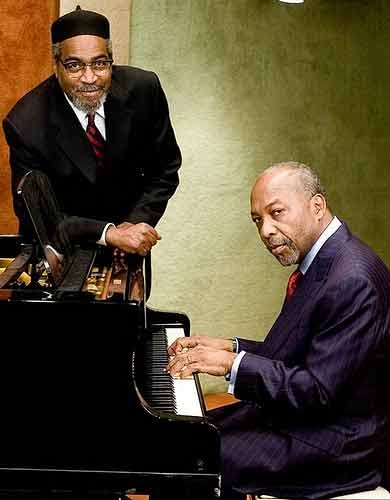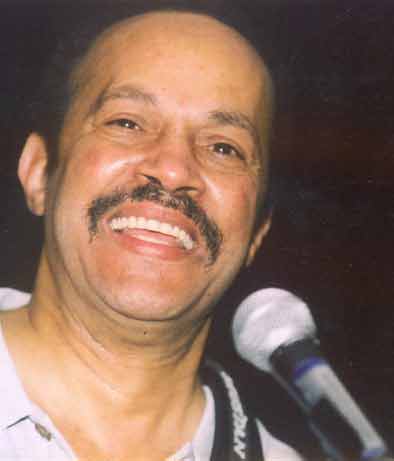'You Felt When It Was Coming...'
The Glory That Was Philadelphia International Records
By David McGee
LOVE TRAIN: THE SOUND OF PHILADELPHIA
Various Artists
PIR/LegacyFour discs, 71 songs, nearly half of them number one singles. An overview of the last great gasp of classic, church-influenced soul music before disco took over and subsumed it in mechanical rhythms and mediocre singers—a musical trend the organization in question here had an inadvertent hand in jumpstarting by way of the skip beat introduced by the label's great drummer Earl Young on Harold Melvin and the Blue Notes' 1973 R&B chart topper/pop Top 10 single, "The Love I Lost." Home to a creative team of writers, musicians, groups and solo artists with few parallels—Motown being the most obvious—in post-war American music. And there was music with a purpose, music that looked at the condition of the African-American community and reported on it in dramatic, moving ways.
"You felt when it was coming: a bright shout of brass, a dusting of strings and the trademark undercurrent-an unrelenting funky beat. Few music catalogs so fully approximated the mood and feel of a changing black America as did Philadelphia International Records. There was the big machine of Motown, to be sure, and the rootsy-ness of Stax, but in its halcyon years there was something inclusive and ecumenical about the Philly sound that, cut to cut-and sometimes within the span of a single song-evoked both the range of influences and the complicated arc of the journey."
Kenny Gamble (left, standing) and Leon Huff: Architects of the Philly SoundSo writes the Los Angeles Times's culture reporter Lynell George in one of the many fine essays in the liner booklet accompanying and adding vital historical perspective and musical insight to the work represented on Love Train: The Sound of Philadelphia, as vital and astonishing in its own way as the collection of Hank Williams recordings released in a new box set reviewed elsewhere in this issue.
The producing/writing/arranging team of Kenny Gamble and Leon Huff, along with Thom Bell, formed the solid axis around which all things Philadelphia International revolved. But in the 1967-1983 PIR golden era chronicled here, a staggering number of exceptional artists convened in the City of Brotherly Love to give voice to the singers and players who would carry a profound and enduring message to the public on record. Gene McFadden & John Whitehead, Bunny Sigler, Linda Creed—these were the heavyweight writers whose timeless musings in song include the O'Jays' "Back Stabbers," McFadden & Whitehead's own hit single, "Ain't No Stoppin' Us Now," The Stylistics' "Hurry Up This Way Again," among others. But make no mistake: a substantial percentage of the hits, and the sound of Philadelphia, was crafted by Gamble, Huff and Bell in some combination or another, as the song credits on these 71 tunes attest. Bell—the master stylist and classically trained pianist who expresses in an interview here his deep admiration for the productions Don Costa did for Little Anthony & The Imperials (well ahead of his work with Frank Sinatra—see last month's essay on Frank Sinatra's Christmas music for further commentary about that period of Costa's career) and the exquisite Burt Bacharach arrangements and Hal David lyrics for Dionne Warwick; Gamble & Huff, who in their own interview discuss how much they learned about the textures of woodwinds and brass from playing in school bands, before they would take those sensibilities to a whole other level when they teamed up to form PIR and define a decade. This box set does all these people proud in documenting the enduring gift they gave American music, but a greater service in emphasizing the contributions of lesser known, but no less critical, names in the evolution of the Philly sound. Asked by writer Leo Sacks to define the essence of the Philly Sound, Bell gives props where props are due: "That's in the mind of everyone who played a role in the evolution of the Philly Sound. So you have to pose that to the hundred-plus people, from Charles Collins to Bob Babbitt to Joseph Jefferson and Yvette Davis, who shaped the recipe. 'Cause it was a lot more than Gambs, Huff and Bell. It's like fried chicken, partner. In one part of Atlanta they use salt and pepper, flower and baking soda. In another part of town they only use paprika. Same town, and it's all good. Different ain't better."
Thom Bell: The Philly Sound 'was a lot more than Gambs, Huff and Bell'In the end we have the fruits of these artists' labors summarized on four discs. Those who think of the Philly Sound as the O'Jays' edgy "Back Stabbers" or the Three Degrees' lush, aching "When Will I See You Again," or the Intruders' driving "I'll Always Love My Mama," might be surprised to hear the roots of the story in late '60s R&B crossover gems such as the Soul Survivors' joyous 1967 sprint through Gamble-Huff's "Expressway To My Heart," the Intruders' playful 1968 single, "Cowboys to Girls," Jerry Butler's powerful, pulsating 1969 monument, "Only the Strong Survive," and certainly, for God's sake certainly, Dusty Springfield's ethereal whisperings suffusing the Gamble/Huff/Jerry Butler co-write "Brand New Me," a 1969 hit from the diva of blue-eyed soul (and the only white artist in the collection). It only gets better as the music rolls out—the uber-romantic Stylistics and Three Degrees tracks; the O'Jays' aggressive, edgy harmonizing; the Spinners' exuberant, strutting confections as fueled by one of the great lead singers of his time, Philippe Wynne; the great Lou Rawls, given new life on PIR and delivering his smoldering classic, "You'll Never Find Another Love Like Mine"; the Jacksons, who stopped by to shake up the place with "Enjoy Yourself"; and of course Harold Melvin & the Blue Notes' timeless gospel-rooted vocalizing. It's all breathtaking, from the best known of the tracks to those that have slipped a bit below the radar in time (think of Jean Carn's "Free Love"). With the emergence of each new melisma-afflicted R&B singer the honesty and soulfulness of the artists represented here and those from whom they learned becomes more affecting, and more rare. Luxuriate in this, and pray, pray, pray that Lizz Wright makes it big and brings back real soul singing for a fruitful, long run.
THE BLUEGRASS SPECIAL
Founder/Publisher/Editor: David McGee
Contributing Editors: Billy Altman, Derk Richardson
Logo Design: John Mendelsohn (www.johnmendelsohn.com)
Website Design: Kieran McGee (www.kieranmcgee.com)
Staff Photographers: Audrey Harrod (Louisville, KY; www.flickr.com/audreyharrod), Alicia Zappier (New York)
E-mail: thebluegrassspecial@gmail.com
Mailing Address: David McGee, 201 W. 85 St.—5B, New York, NY 10024
Founder/Publisher/Editor: David McGee
Contributing Editors: Billy Altman, Derk Richardson
Logo Design: John Mendelsohn (www.johnmendelsohn.com)
Website Design: Kieran McGee (www.kieranmcgee.com)
Staff Photographers: Audrey Harrod (Louisville, KY; www.flickr.com/audreyharrod), Alicia Zappier (New York)
E-mail: thebluegrassspecial@gmail.com
Mailing Address: David McGee, 201 W. 85 St.—5B, New York, NY 10024



